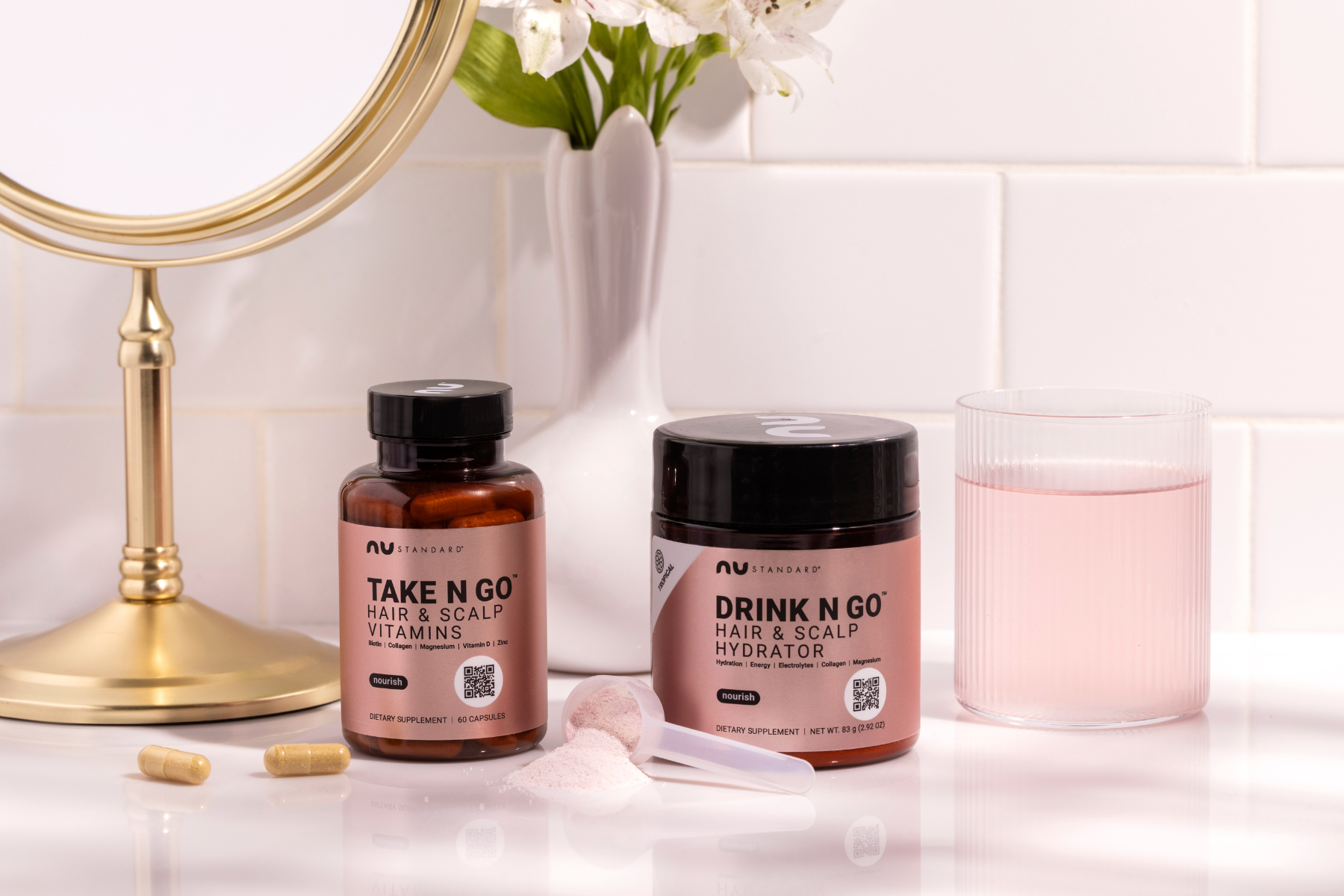
BEAUTY, WELLNESS, & THE FDA
Our commitment to transparency, safety, and responsible product development
FDA & REGULATORY INFORMATION
At NU Standard, transparency is a responsibility we take seriously. This page explains how our products are regulated, the role of the U.S. Food and Drug Administration (FDA), and how we align with current regulations to support consumer trust and safety.
Understanding FDA Oversight
The U.S. Food and Drug Administration (FDA) oversees dietary supplements and cosmetic products differently than prescription drugs.
What this means for consumers:
▪️ The FDA does not approve dietary supplements or cosmetics before they are sold.
▪️. Brands are responsible for ensuring products are safe, properly labeled, and manufactured according to applicable regulations.
▪️ The FDA monitors compliance, labeling practices, and post-market safety.
NU Standard takes this responsibility seriously across all product categories.
Our Approach to Responsible Compliance
We believe regulatory compliance is the foundation of trust.
Our approach includes:
▪️ Manufacturing in FDA-registered, cGMP-compliant facilities
▪️ Selecting ingredients based on safety, quality, and intended use
▪️ Following FDA guidelines for labeling and permissible statements
▪️ Avoiding disease claims or medical promises
We continuously review evolving guidance to ensure our products reflect responsible industry standards.
Understanding Product Categories
NU Standard offers both dietary supplements and cosmetic products, which are regulated under different FDA frameworks.
▪️ Dietary supplements are regulated under FDA dietary supplement regulations and may include structure/function statements.
▪️ Cosmetic products are regulated by the FDA and are subject to additional requirements, including those established under newer legislation.
Each product is developed and managed according to its specific regulatory pathway.
MoCRA: An Update to Cosmetic Regulation
The Modernization of Cosmetics Regulation Act of 2022 (MoCRA) is a federal law that expands the FDA’s oversight of cosmetic products in the United States.
MoCRA strengthens existing regulations by increasing accountability, recordkeeping, and safety requirements for cosmetic brands and manufacturers.
It represents an important step forward in consumer protection and industry transparency.
Our Alignment with MoCRA Requirements
For cosmetic and professional-use products, NU Standard aligns with MoCRA requirements, which may include:
▪️ FDA facility registration
▪️ Product listing submissions where applicable
▪️ Safety substantiation and documentation
▪️ Adverse event reporting protocols
▪️ Responsible labeling and ingredient practices
These measures support transparency, traceability, and consumer safety.
About Our Product Statements
Some NU Standard products include statements related to supporting hair wellness, scalp health, hydration, or overall well-being.
These are known as structure/function statements, which describe how ingredients support normal body functions.
IMPORTANT NOTE:
These statements have not been evaluated by the FDA and are not intended to diagnose, treat, cure, or prevent any disease.
Transparency Is Ongoing
Regulatory responsibility is not static — it evolves.
NU Standard continuously reviews FDA guidance and MoCRA requirements to ensure our practices remain current, responsible, and aligned with consumer expectations.
We are actively developing a dedicated Transparency Page to share deeper insights into our sourcing, formulation philosophy, and quality standards.


